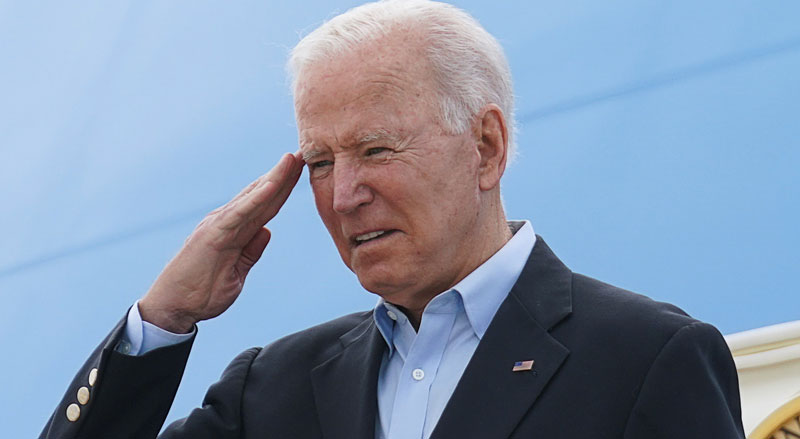President Joe Biden is discreetly but steadily altering his approach to the Israel-Hamas conflict in response to mounting pressure from activist groups and his constituents in anticipation of the 2024 election.
Breaking from its previous stance, the United States refrained from exercising its veto power in the United Nations Security Council (UNSC) for the first time since the war commenced on October 7.
The UNSC resolution, which called for an “immediate” six-week ceasefire between Israel and Hamas, contingent upon the release of hostages in Gaza, received the Biden administration’s support.
This decision was prompted by the demands of the President’s voting base, public outcry, and internal unrest within the White House.
Following the Hamas attacks on October 7, which tragically claimed the lives of more than 1,200 civilians, the Biden administration initially endorsed Israel’s retaliatory measures in the Gaza Strip.
Despite calls for a ceasefire from pro-Palestinian advocates, the administration rejected them, expressing concerns that such a move would only serve to bolster Hamas’s capabilities.
“The fact is that Israel, as they respond to these attacks, it seems to me that — have to continue to ensure that you have what you need to defend yourselves,” Biden told Israeli Prime Minister Benjamin Netanyahu during a trip to Tel Aviv, Israel on Oct. 18.
“And we’re going to make sure that occurs.”
We will never fail to have Israel’s back. pic.twitter.com/3JM8d665iJ
— President Biden (@POTUS) October 8, 2023
“Any ceasefire would give Hamas the ability to rest, to refit, and to get ready to continue launching terrorist attacks against Israel,” State Department spokesman Matthew Miller said.
The Biden administration decided to alter its course due to pressure from activist groups, protestors, and his voting base. Despite vetoing three similar resolutions in the past, the administration permitted the UNSC to pass the ceasefire resolution on Monday.
“We came to the determination that this Security Council resolution… called for two things that we support: a ceasefire and the release of hostages together,” Miller said. “And so that’s why we abstained from the resolution. We do believe that it carries weight and should be implemented.”
“I had predicted shortly after the war that, despite President Biden’s overwhelming support for Israel at the time, he would cave to his extreme, pro-Hamas, anti-Israel base once Israel began to fight back after the October 7 atrocities,” Mark Dubowitz, CEO of Foundation for Defense of Democracies (FDD) announced.
“The Israel Defense Forces (IDF) are fighting in one of the most dangerous and complicated urban environments in the history of warfare against an enemy whose entire strategy rests on maximizing the number of dead Palestinian and Israeli civilians.”
”Hamas has run one of the most successful disinformation campaigns by lying about the number of casualties and how many are terrorists versus civilians. President Biden has fallen for this, even quoting Hamas (Gaza casualty figure) numbers in his State of the Union,” Dubowitz said.
“In doing so, he has fallen into the political trap set by Hamas, their terror masters in Iran and their supporters in Michigan and other key states.”
The administration’s choice follows months of pro-Palestinian protests nationwide, where demonstrators urged Biden to push Israel for an immediate ceasefire in Gaza.
These protests, some of which turned violent, disrupted daily life, closed down buildings and roads, and in some instances, fueled antisemitism and targeted Jewish individuals.
Following the October 7 attacks, Biden’s approval ratings among Democratic voters plummeted due to his backing of Israel.
In November, hundreds of U.S. officials from various administration agencies signed a letter to Biden criticizing his support for Israel and demanding an immediate ceasefire.
Biden’s management of the conflict continued to erode his support as January and February approached, particularly among Muslim and younger voters.
Democratic Michigan Representative Rashida Tlaib, representing a state with a significant Muslim population, urged voters to not back Biden in the state primaries due to his ongoing support for Israel, a sentiment echoed by pro-Palestinian activist groups and leaders.
In the February Michigan primary, over 100,000 individuals opted to vote “uncommitted” instead of for Biden.
His support is dwindling in other key states like Arizona, Georgia, Wisconsin, North Carolina, and Pennsylvania, where former president and 2024 candidate Donald Trump is now gaining ground among specific voter groups. Biden urged for a prompt six-week ceasefire in Gaza on Mar. 1 tied to the hostages’ release, echoing similar language used by his senior officials.
The Biden administration’s approval of the UN ceasefire resolution this week was met with approval from pro-Palestinian advocates, who are now seeking further concessions from Biden.

